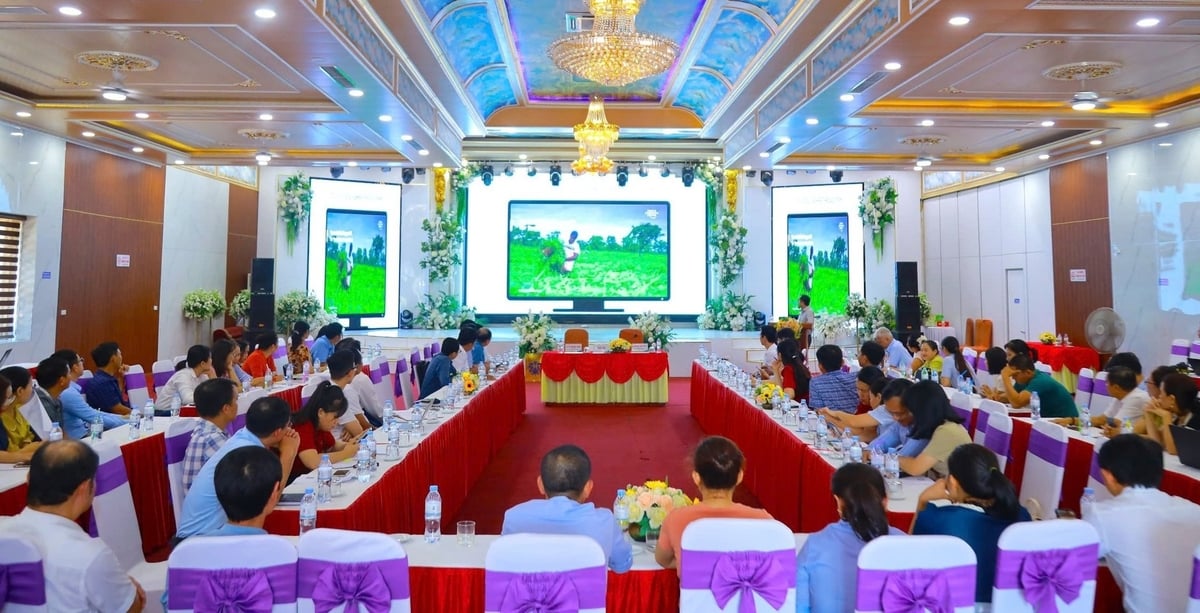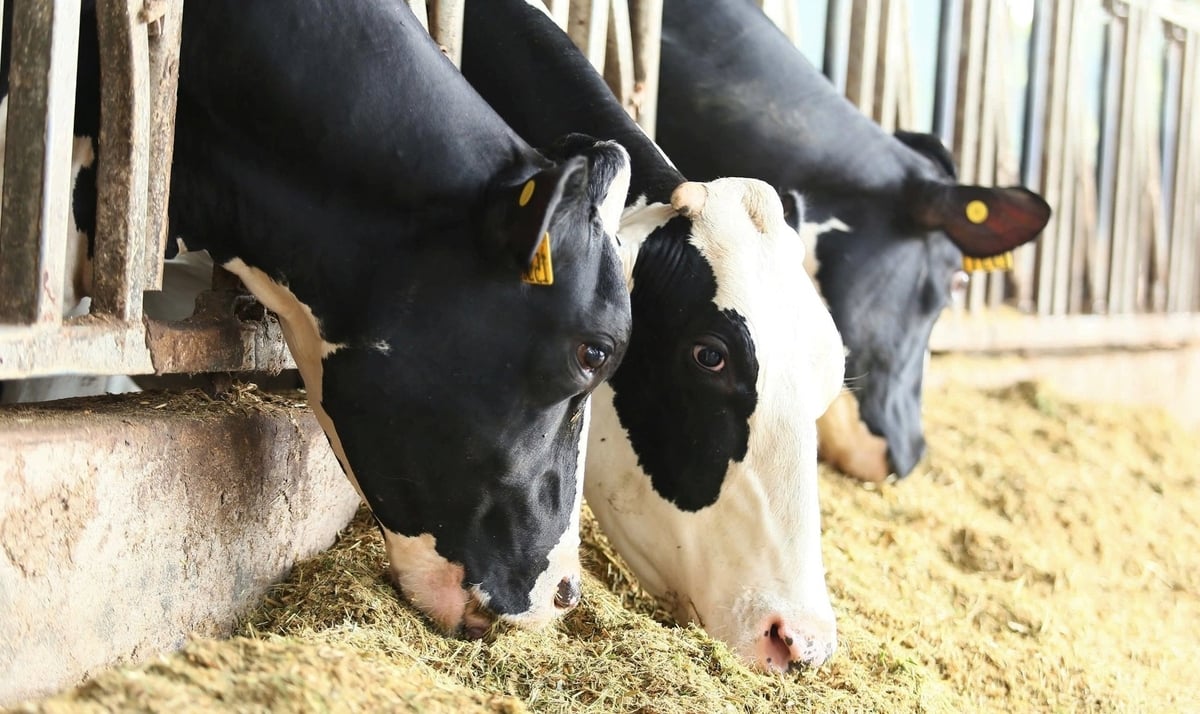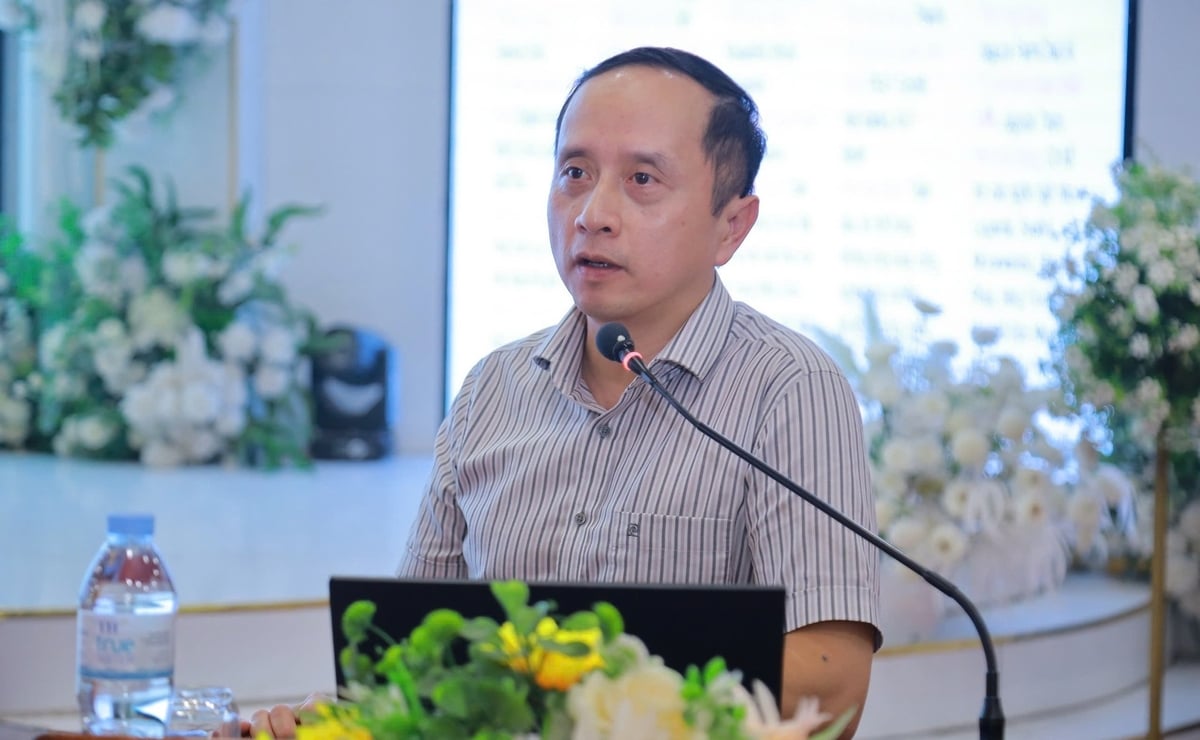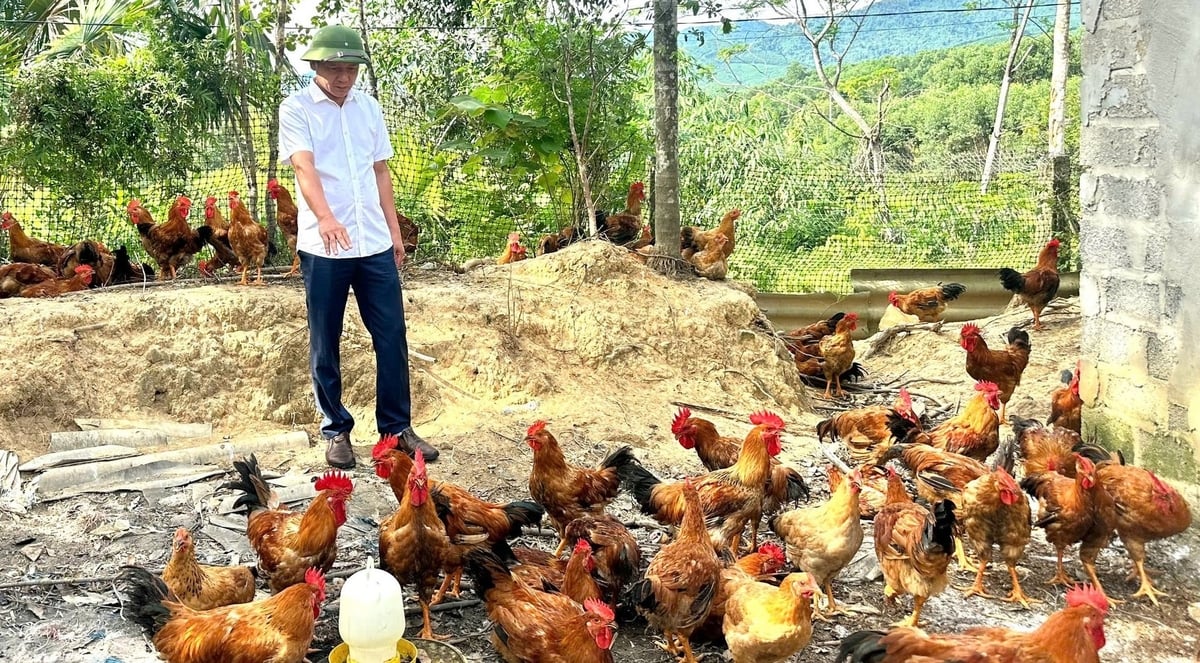January 3, 2026 | 06:17 GMT +7
January 3, 2026 | 06:17 GMT +7
Hotline: 0913.378.918
January 3, 2026 | 06:17 GMT +7
Hotline: 0913.378.918
On August 8 in Nghe An, the National Agricultural Extension Center, in collaboration with the Nghe An Department of Agriculture and Environment, organized a thematic seminar on Application of Artificial Intelligence in Agricultural Extension.

The application of artificial intelligence in agricultural extension is an inevitable trend in the current context. Photo: Viet Khanh.
Delegates focused on assessing the current status of AI applications in various agricultural production models nationwide. Some notable applications of AI in agriculture today include livestock health monitoring systems using chips, AI-powered cameras, and automatic environmental sensors; drone spraying technology; weather forecasting software; and smart irrigation systems.
The Nghe An Agricultural Extension Center assessed that AI technology brings many benefits to local agricultural production. In crop cultivation, AI can optimize the production process from seed selection, planting, and care to harvesting. Through modern technologies such as smart sensors and big data analytics systems, AI demonstrates the ability to accurately predict environmental conditions, water and fertilizer requirements, and optimal farming times. This enables farmers and businesses to promptly adjust their plans and methods, thereby reducing risks and improving the quality of agricultural products.

Large enterprises such as TH Group have pioneered the application of technology in livestock farming by attaching chips to cattle to optimize livestock production costs and ensure the stable development of herds. Photo: Viet Khanh.
In livestock farming, AI helps analyze data related to nutrition, living conditions, and animal behavior, thereby accurately predicting growth rates and output yields. This not only optimizes livestock production costs but also ensures the stable development of herds.
In the aquaculture sector, AI plays a role in monitoring and adjusting environmental factors such as water temperature, salinity, pH levels, and dissolved oxygen content. During operation, the AI system automatically analyzes and controls these parameters in real time, thereby creating optimal living conditions for farmed species. This constant and precise regulation creates optimal living conditions for farmed species, minimizes stress, improves survival rates, and boosts productivity. Furthermore, AI-based image recognition can detect early signs of disease or abnormal behavior in aquatic species, allowing timely intervention and reducing losses.

Mr. Do Minh Phuong, Deputy Director of the Inspection Center (Digital Transformation Department - Ministry of Agriculture and Environment), affirmed that AI technology brings significant changes to agricultural production. Photo: Viet Khanh.
Nghe An province has a large agricultural area of nearly 1.5 million hectares, with a diverse and abundant structure of crops and livestock, and a high proportion of the population engaged in farming. However, agricultural production faces numerous difficulties and challenges due to climate change, a shortage of young labor, unstable productivity, and low competitiveness of agricultural products. Investment in applying scientific and technical advances, information technology, high technology, and digital technology in agriculture remains limited and inadequate.
Given this reality, applying AI in the process of digital transformation in agricultural production is an inevitable trend, and for agricultural extension work, it is even more urgent.
Although still in its early stages, Nghe An’s agricultural extension sector has applied AI technology quite flexibly and achieved many positive results through various models. Notable examples include the application of blockchain technology for traceability in chicken farming, and the NA6 high-quality rice production model that applies advanced techniques to reduce greenhouse gas emissions and optimize yields.

The chicken farming model applying blockchain technology in Nghe An has yielded positive results. Photo: Viet Khanh.
At the end of 2024, AgriDrone Vietnam, in cooperation with the former Do Luong District Agricultural Service Center, organized a workshop and demonstrated the DJI Agras T40 drone for direct seeding over an area of 10 hectares. The event also introduced the drone’s functions for spraying pesticides, sowing seeds, and applying fertilizers, with the aim of reducing human footprints in the fields.
In addition, AI application training sessions were held for about 300 participants, including provincial and grassroots agricultural extension officers, cooperatives, and exemplary farmers in Nghe An province.
Mr. Do Minh Phuong, Deputy Director of the Inspection Center (Digital Transformation Department - Ministry of Agriculture and Environment), highlighted a range of benefits that AI brings to agricultural production in general and agricultural extension in particular:
"The agricultural extension sector can flexibly apply AI technology in training programs, thereby providing an online learning platform for a large number of farmers. When used properly, AI can accurately monitor production developments, track crop health, assess soil conditions, as well as develop and provide guidance on smart agriculture."
Translated by Kieu Chi
/2025/12/31/0650-2-160930_936.jpg)
(VAN) Alternate wetting and drying (AWD) irrigation helps reduce methane emissions, laying a solid foundation for sustainable rice production and serving as a basis for the formation of carbon credits.

(VAN) From extensive shrimp ponds, baskets of don gathered on the mudflats, to boats carrying visitors to watch birds, all livelihoods here depend on clean water, green forests, and the calls of migratory birds.
/2025/12/26/0703-3-204813_117.jpg)
(VAN) Transparency in information and listening to local people have helped address ground clearance bottlenecks and build social consensus, thereby accelerating the progress of the JICA3 irrigation project.
/2025/12/27/0609-3-233846_327.jpg)
(VAN) The JICA3 project is expected to become a 'water shield,' helping control saltwater intrusion, proactively secure water resources, protect livelihoods, and promote sustainable development in coastal areas.
/2025/12/26/5654-3-164509_655.jpg)
(VAN) As Viet Nam makes strong commitments toward achieving net-zero emissions, controlling and reducing methane emissions in livestock production is increasingly becoming a mandatory requirement.

(VAN) 'People, Primates, Plants: Co-managing Biodiversity and Improving Livelihoods in Vietnam' (the PPP Project) is an international initiative implemented in Vietnam by BGCI, CEGORN, and ICRAF/World Agroforestry.

(VAN) Dak Nong established a risk-level zoning map for coffee, built a digital data platform for the sector, and promoted certified production in line with EUDR.